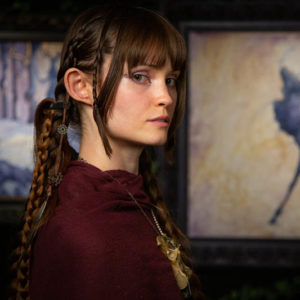Mistakes for Better Writing
The other day, I was listening to an audiobook and a very competent character all of a sudden was in a deadly situation. I won’t say which book it was, for fear of spoiling a plot point, but the gist was that an incredible fighter challenged an opponent to bring anyone they want to duel him. The character expected to take on two duelists but found himself staring down against four duelists in a high-stakes winner-take-all match that could change the entire path of the story. Two would be challenging, but four at once? It meant a certain loss.
The protagonist wasn’t specific when issuing the challenge which led to that unexpected twist when his enemies took advantage of his mistake. It was a surprise to the character, and to most readers, who would have interpreted the challenge the same way the character meant it. So in a way, not only was the character blindsided, but the readers are as well.
This made me realize how simple and effective working mistakes into writing fiction can be. When writing a story, reveals and twists are usually a product of some meticulous groundwork on the part of the author and the characters. usually, someone in the story is bested but only after being outsmarted or outmatched, and rarely is this due to a simple lapse in judgment or careless mistake.
But why? People make mistakes all the time in the real world, so characters should be given the same consideration.
It made me think of comedies like “Burn After Reading” where one misunderstanding creates a chain of more misunderstandings until the movie’s tragicomic end. Many comedies rely on mistakes or misunderstandings to provide the dramatic irony that makes it funny. A good example of this is in Tropic Thunder, the characters think they’re on a realistic movie set but they really are in an active combat zone and are in real danger. They don’t know that, and we do, and watching them react in wildly inappropriate ways is fucking hilarious.

You come to expect mistakes and misunderstandings in comedy, but I was not expecting it in that book at that time. It made me wonder how many convoluted plot points or twists could have been simply replaced by a mistake or misunderstanding. Not only was it a straightforward way to create sudden conflict and high-stakes in the plot, but it also supported building characterization to boot. The hero is a great fighter, we already knew that, but now we also know that they can be careless and could have avoided this situation if they’d given their challenge more thought. We also know that his enemies are cunning and didn’t have to rely on physical skill to gain the upper hand in the duel, they just had to exploit the wording of the challenge. Which they did.
It also served to create more flavor to the worldbuilding since the judge put more stock into the technical legality of the match, instead of the challenger’s intention. This society cares about rules and details. If you’re not careful how you play the game, you deserve to lose.
I think a mistake can be a good tool for a writer to have in their arsenal. Like all tools, it should never be abused, but mistakes can add comedy, realism, tension, and surprise to an otherwise convoluted scene.
